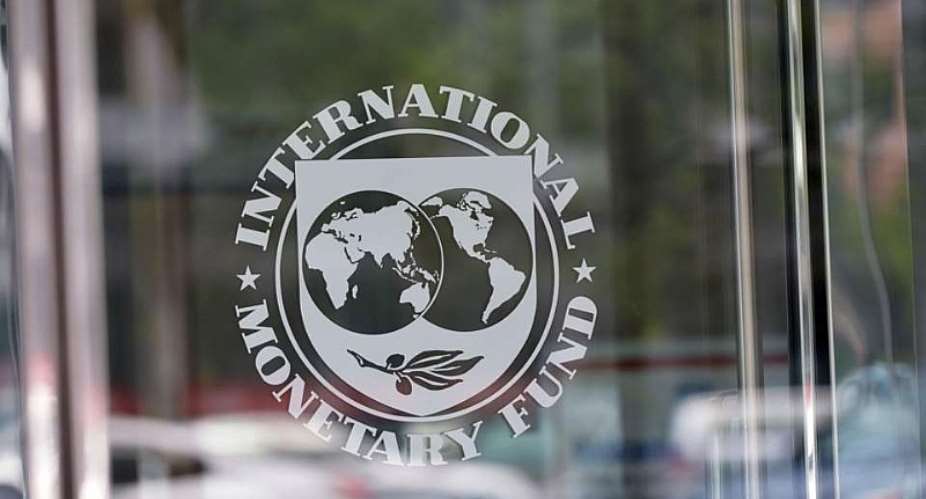Claim: Social media posts and news reports claim that the IMF in its April 2021 Fiscal Monitor document has downgraded Ghana’s economic classification to low-income status.
Verdict: False. The classification of Ghana as a low-Income developing country in the IMF’s April 2021 Fiscal Monitoring document is not a downgrade as it has been so in most of the IMF’s previous report even dating back to April 2017.
Full text:
Many social media posts and news reports including those from Joy News , NorvanReports, and Twitter users claim that Ghana has been downgraded from a Middle-Income Country to a Low Income Country status.



The publications cited the IMF’s April 2021 Fiscal Monitor Report as the source of the information.
The 104-page IMF document, published on April 1, 2021 presented an overview of the fiscal actions taken by various countries in response to COVID-19 and how they can get ahead of the pandemic and towards economic recovery.
Page 60 of the document listed Ghana amongst the low-income developing countries.

But does this confirm claim that the IMF has downgraded Ghana’s economic classification?
Verification:
In authenticating the veracity of the claim, we assessed the IMF’s previous Fiscal Monitor report produced in October 2019 and noticed that on page 42, Ghana was already classified as a low-income developing country.
With the IMF’s Fiscal Monitor report produced twice each year, we went through all previous reports up to April 2017 and discovered that Ghana had consistently been listed as a low-income developing country in those reports.
This goes to make the case that there hasn’t been a downgrade of the country’s classification at least for the 10 previous reports examined.
Further verification
In response to an email inquiry, Senior Communication Officer at the IMF Press Office in Washington, US, Lucie Mboto Fouda said the classification of countries in the IMF’s Fiscal Monitor is solely for analytical purposes and cannot be related to the World Bank’s classification.
While the IMF document breaks down countries into three groupings, the World Bank, whose classification is also widely accepted, does its classification in four groupings.
“Please be advised that for analytical purposes, the IMF Fiscal Monitor breaks down countries into three groupings:
1) Advanced Economies;
2) Emerging Market and Middle-Income Economies; and
3) Low-Income Developing Countries.
This analytics classification is not new and it does not have an incidence on the countries' access to IMF or World Bank facilities,” she indicated.
We observe that in the World Bank’s classification, Ghana is listed as a lower-middle income country .
‘World Bank’s classification a better measure’
Professor Peter Quartey, the Director of the Institute of Statistical, Social and Economic Research (ISSER) at the University of Ghana in a separate phone interview explained that there may be a confusion between the World Bank’s classification and the IMF’s classification.
“The World Bank classifies countries according to their per capita income so if your income is above a certain threshold, then you are classified as a middle income or if it is above a certain threshold then you are a low income country… According to the World Bank classification, we are a low-middle income country..”
“The IMF classification looks at fiscal data whereas the World Bank classification looks at income per capita in other words your GDP (total income), if we were to share it equally across the population, what will be each person’s share and that is what we call per capital income.”
Prof. Quartey however said he believes the World Bank’s classification presents a better classification of a country’s economic status as the IMF’s classification is “a narrow way of defining a country in terms of its economic status.”
Per the World Bank’s latest country classification update of July 1, 2020 , Ghana remains a low-middle income country. It is amongst the 50 countries of the world in that category.

Meanwhile, the IMF Country Representative, Dr Albert Touna Mama has described the claims of a downgraded classification to low-income country status as “fake news.”

The claimants appear to be basing their claim on the erroneous assumption that Ghana, a known lower-middle income country (According to the World Bank) is a now a low-income developing country (According to the IMF).
This is wrong because the two classifications are independent of each other and calculated differently by the two separate organizations.
Conclusion
Our findings from about 10 previous Fiscal Monitor reports of the IMF show that Ghana has consistently been classified as a low-Income developing country hence it is false to claim that the 2021 report shows a downgrading of Ghana’s economic classification.





 NDC demands complete overhaul of security protocols at EC to safeguard electoral...
NDC demands complete overhaul of security protocols at EC to safeguard electoral...
 Ghana reaches interim deal with international bondholders — Finance Ministry
Ghana reaches interim deal with international bondholders — Finance Ministry
 Mahama to form joint army-police anti-robbery squads to safeguard 24-hour econom...
Mahama to form joint army-police anti-robbery squads to safeguard 24-hour econom...
 Another man jailed eight months over shrinking penis
Another man jailed eight months over shrinking penis
 Ghana to adjust external bond deal to meet IMF debt sustainability goals — Finan...
Ghana to adjust external bond deal to meet IMF debt sustainability goals — Finan...
 IMF negotiations: We've not failed to reach an agreement with bondholders; we’ve...
IMF negotiations: We've not failed to reach an agreement with bondholders; we’ve...
 EC begins recruitment of temporary electoral officials, closes on April 29
EC begins recruitment of temporary electoral officials, closes on April 29
 NPP lost the 2024 elections in 2022 due to inflation and cedi depreciation — Mar...
NPP lost the 2024 elections in 2022 due to inflation and cedi depreciation — Mar...
 Your good heart towards Ghana has changed; don’t behave like Saul - Owusu Bempah...
Your good heart towards Ghana has changed; don’t behave like Saul - Owusu Bempah...
 Wa West: NDC organizes symposium for Vieri Ward Women
Wa West: NDC organizes symposium for Vieri Ward Women
